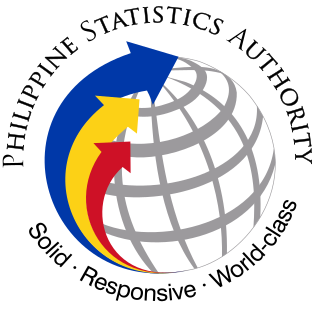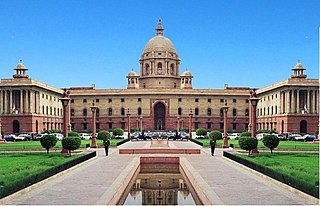Environment and Climate Change Canada is the department of the Government of Canada created under the Department of the Environment Act with responsibility for coordinating environmental policies and programs as well as preserving and enhancing the natural environment and renewable resources. The powers, duties and functions of the Minister of the Environment and Climate Change extend to and include matters relating to: "preserve and enhance the quality of the natural environment, including water, air, soil, flora and fauna; conserve Canada's renewable resources; conserve and protect Canada's water resources; forecast daily weather conditions and warnings, and provide detailed meteorological information to all of Canada; enforce rules relating to boundary waters; and coordinate environmental policies and programs for the federal government."
The Office of the Gene Technology Regulator, supports the Gene Technology Regulator, and is a part of the Australian Government Department of Health and Ageing. The Office was established under the Commonwealth Gene Technology Act 2000. This legislation sets forth a nationally consistent regulatory system for gene technology in Australia.
A regulatory agency is a public authority or government agency responsible for exercising autonomous authority over some area of human activity in a regulatory or supervisory capacity. Regulatory authorities are commonly set up to enforce safety and standards, and/or to protect consumers in markets where there is a lack of effective competition or the potential for the undue exercise of market power. An independent regulatory agency is a regulatory agency that is independent from other branches or arms of the government.

The Philippine Statistics Authority, abbreviated as PSA, is the central statistical authority of the Philippine government that collects, compiles, analyzes and publishes statistical information on economic, social, demographic, political affairs and general affairs of the people of the Philippines and enforces the civil registration functions in the country.
In the experimental (non-clinical) research arena, good laboratory practice or GLP is a quality system of management controls for research laboratories and organizations to ensure the uniformity, consistency, reliability, reproducibility, quality, and integrity of products in development for human or animal health through non-clinical safety tests; from physio-chemical properties through acute to chronic toxicity tests.

The Ministry of Home Affairs is a ministry of the Government of India. As the interior ministry of India, it is mainly responsible for the maintenance of internal security and domestic policy. The Home Ministry is headed by Union Minister of Home Affairs Amit Shah.

The European Data Protection Supervisor (EDPS) is an independent supervisory authority whose primary objective is to ensure that European institutions and bodies respect the right to privacy and data protection when they process personal data and develop new policies.
The European Regulators' Group for Electricity and Gas (ERGEG) was an advisory group to the European Commission on internal energy market issues in Europe. ERGEG was set up by the European Commission to assist the commission in consolidating a single EU market for electricity and gas. ERGEG's members were the heads of the national energy regulatory authorities in the EU's 28 Member States. It was dissolved in 2011 when Agency for the Cooperation of Energy Regulators (ACER) took over its responsibilities.
The Mechanism for Cooperation and Verification (CVM) is a safeguard measure invoked by the European Commission when a new member or acceding state of the European Union has failed to implement commitments undertaken in the context of the accession negotiations in the fields of the Area of freedom, security and justice or internal market policy.

The State Committee for City Building and Architecture is a governmental agency within the Cabinet of Azerbaijan in charge of regulating the urban construction and development and overseeing architectural activities in Azerbaijan. The Committee is headed by Anar Guliyev.

The State Customs Committee of Azerbaijan Republic is a governmental agency within the Cabinet of Azerbaijan in charge of customs clearance for imports and exports, and regulation of all customs activities within Azerbaijan Republic. The committee is headed by Safar Mehdiyev.

The Telecommunications Regulatory Authority of Lebanon is an independent public institution established by Law 431/2002 and legally mandated to liberalize, regulate, and develop telecommunications in Lebanon. The TRA effectively started operations upon the nomination of its board members in February 2007.

The Jordan Securities Commission (JSC) is a public institution with financial and administrative autonomy in Jordan

South African environmental law describes the legal rules in South Africa relating to the social, economic, philosophical and jurisprudential issues raised by attempts to protect and conserve the environment in South Africa. South African environmental law encompasses natural resource conservation and utilization, as well as land-use planning and development. Issues of enforcement are also considered, together with the international dimension, which has shaped much of the direction of environmental law in South Africa. The role of the country's Constitution, crucial to any understanding of the application of environmental law, also is examined. The National Environmental Management Act (NEMA) provides the underlying framework for environmental law.
South African administrative law is the branch of public law in that country which regulates the legal relations of public authorities, whether with private individuals and organisations or with other public authorities, or better say, in present-day South Africa, which regulates "the activities of bodies that exercise public powers or perform public functions, irrespective of whether those bodies are public authorities in a strict sense." According to the Constitutional Court, administrative law is "an incident of the separation of powers under which the courts regulate and control the exercise of public power by the other branches of government."
The Ministry of Justice of the Republic of Uzbekistan,, is the central government body charged consistent implementation of a single state policy in the sphere of lawmaking and law enforcement practice in Uzbekistan.
In parliamentary systems and presidential systems of government, primary legislation and secondary legislation, the latter also called delegated legislation or subordinate legislation, are two forms of law, created respectively by the legislative and executive branches of government. Primary legislation generally consists of statutes, also known as 'acts', that set out broad outlines and principles, but delegate specific authority to an executive branch to make more specific laws under the aegis of the principal act. The executive branch can then issue secondary legislation, creating legally enforceable regulations and the procedures for implementing them.

Azerbaijan is a member of Council of Europe's Group of States Against Corruption (GRECO) and OECD's Anti-Corruption Network. Its anti-corruption measures are regularly evaluated within their monitoring mechanisms. GRECO notes that despite of carried out anti-corruption policies and measures by the Government of Azerbaijan, corruption is referred as one of problematic areas in Azerbaijan.
The Financial Monitoring Service of Azerbaijan is a public legal entity whose role is policy coordination, overall regulation, and supervision in the sphere of anti-money laundering and counter-terrorism financing in the country of Azerbaijan. According to its website, the Financial Monitoring Service was established by the Decree No. 66 of the President of the Republic of Azerbaijan, dated 23 February 2009. The Financial Monitoring Service is the authority that implements the powers identified by the legislation on the prevention of illegally obtained funds and other property's use in the financing of terrorism in accordance with international standard.

Federal Service for Surveillance in Healthcare (Roszdravnadzor) is the federal service of the Russian Federation that exercises control and supervision functions in the field of health care. Until 2012, it was called the Federal Service for Surveillance of Health and Social Development and was subordinate to the Ministry of Health and Social Development of the Russian Federation, then from 2012 to 2020 it was shifted to reporting directly to the Government of the Russian Federation, and from 2020 again made subordinate to the Ministry of Health of the Russian Federation.









